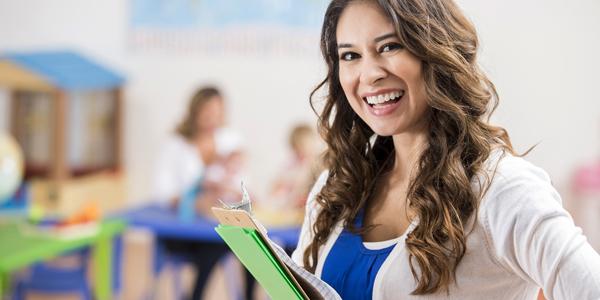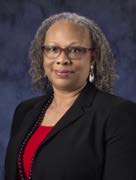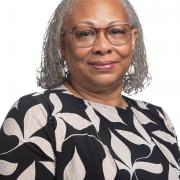From Our President: Taking Care of Ourselves First

You are here
 Hello, NAEYC members! I am honored to serve as your NAEYC president and am excited about the next two years of service to you and to our field. This is an important time for the early childhood education profession, and I look forward to this next chapter and to sharing that journey with you.
Hello, NAEYC members! I am honored to serve as your NAEYC president and am excited about the next two years of service to you and to our field. This is an important time for the early childhood education profession, and I look forward to this next chapter and to sharing that journey with you.
As I write this column, we are in the midst of the international COVID-19 crisis. Suddenly, the early childhood education field and early childhood educators are being recognized as essential because of our service: providing early childhood care and education for families who are carrying out the necessary work to keep our cities going and are on the front lines of saving lives. Our field is critical to the work that must take place in order to address the COVID-19 pandemic. While we have long known how crucial early childhood education and care are, we are at a place and time where our often underappreciated work is being recognized for the important role it has in society, and we are stepping up to accept the challenge and to lead the charge.
 This is work we at NAEYC have been engaged in for many years through Power to the Profession (P2P) and other initiatives—and P2P is working hard now to ensure that the value of our field is clearly articulated in terms and standards and will be recognized beyond this current crisis. As we move forward in those efforts, we—as individuals and as members of the larger field—must continue to be proactive in making sure we are open to having critical and courageous conversations about our work. One of those critical, ongoing conversations is a main focus of this issue of Young Children: supporting children who have experienced trauma. As you will read in these pages, many of us in the early childhood profession along with experts in other fields have given a lot of thought and research to our practice and its relationship to trauma; we focus in particular on how traumatic experiences affect children and how that plays out in our early childhood classrooms and programs on a daily basis. However, I wonder if we have given enough thought and discussion to the trauma that some of us (the adults who work in the field) bring to those same early childhood classrooms and programs. Some teachers who deal with traumatized children can sometimes develop their own trauma symptoms (what’s known as secondary trauma). Circumstances like our current global health crisis can also trigger stress and trauma and bring once-buried memories back to the forefront of our lives. This is an incredibly difficult time for us all. The effects may be devastating for many of us, and the enormity of the impact may be staggering.
This is work we at NAEYC have been engaged in for many years through Power to the Profession (P2P) and other initiatives—and P2P is working hard now to ensure that the value of our field is clearly articulated in terms and standards and will be recognized beyond this current crisis. As we move forward in those efforts, we—as individuals and as members of the larger field—must continue to be proactive in making sure we are open to having critical and courageous conversations about our work. One of those critical, ongoing conversations is a main focus of this issue of Young Children: supporting children who have experienced trauma. As you will read in these pages, many of us in the early childhood profession along with experts in other fields have given a lot of thought and research to our practice and its relationship to trauma; we focus in particular on how traumatic experiences affect children and how that plays out in our early childhood classrooms and programs on a daily basis. However, I wonder if we have given enough thought and discussion to the trauma that some of us (the adults who work in the field) bring to those same early childhood classrooms and programs. Some teachers who deal with traumatized children can sometimes develop their own trauma symptoms (what’s known as secondary trauma). Circumstances like our current global health crisis can also trigger stress and trauma and bring once-buried memories back to the forefront of our lives. This is an incredibly difficult time for us all. The effects may be devastating for many of us, and the enormity of the impact may be staggering.
We must be proactive in having critical conversations about our work.
In the spring of 2018, Oprah Winfrey brought the subject of childhood trauma and its impact on adults front and center. She came to Milwaukee, Wisconsin, where I live, and focused her 60 Minutes report on residents here. She discussed the adverse childhood experiences (ACEs) test and study. An ACE score is a summation of characteristics of a challenging childhood, possibly including different types of abuse and neglect—the higher a score, the more likely a person is at risk for later mental and physical health problems. As I reflect back on that report, I wonder how many ACES we’re carrying and what traumas we must heal in order to facilitate the healing of those in our care.
The practices of self-reflection and self-care are critical in these times.
 Learning to care for ourselves
Learning to care for ourselves
Some of us come into this field because we have a need to be nourished and made whole. Some have the hope—perhaps subconsciously—that loving children will heal our wounds. Then there are those who are offered the guidance that this field, absent other skills or education, is a good one for them to go into.
Delechia Johnson is an expert early childhood education teacher educator/trainer and technical assistance provider whom I respect and have learned much from over the years. When I asked her about providing early childhood training to people who may bring trauma with them, she shared these thoughts:
We often teach through the lens of how we were raised. If we have experienced trauma it can impact how we view things, how we trust others, and what we think about ourselves. Those of us who support teachers need to provide opportunities and spaces for teachers to reflect on their personal selves because they will have to blend their personal self with their professional self—one self will impact the other; we need to understand both. Many may think that this is leaning toward us needing to be counselors to teachers, but it is about meeting the needs of the whole person. We talk about meeting the needs of the whole child; we need to do the same for teachers. We need to provide more opportunities that allow teachers to slow down, reflect and access opportunities for self-care. Teachers are not whining; they are asking for help!
Our great responsibility
Our field is charged with the protection and nurturing of our youngest souls. And when the nation is in the midst of a crisis, we are called upon even more to steady small boats in overwhelming seas. I was reminded recently of the advice we receive when flying:
In case of an emergency, air masks will drop from the ceiling. If you are traveling with a minor, please put on your own mask before helping the minor.
Our field is charged with the protection and nurturing of our youngest souls.
In her recently published book Happiness is Running Through the Streets to Find You: Translating Trauma’s Harsh Legacy into Healing, Holly Elissa Bruno writes, “Trauma is boot camp for our own brand of intelligence, if not wisdom. Only when we are truly heard can we speak. Only when we speak can we believe ourselves. Only then, feeling safer from the threat of annihilation can we climb out of our cover story.”
The practices of self-reflection and self-care are critical in these times to ensure that we can be healthy and whole in our service to those who need us. Let us heal our trauma first so we can help others through their own healing and learning. Let’s put on our own masks first.
Best,
Ann
First two photos © NAEYC and third photo © Getty Images
Current president of NAEYC (National Association for the Education of Young Children)
